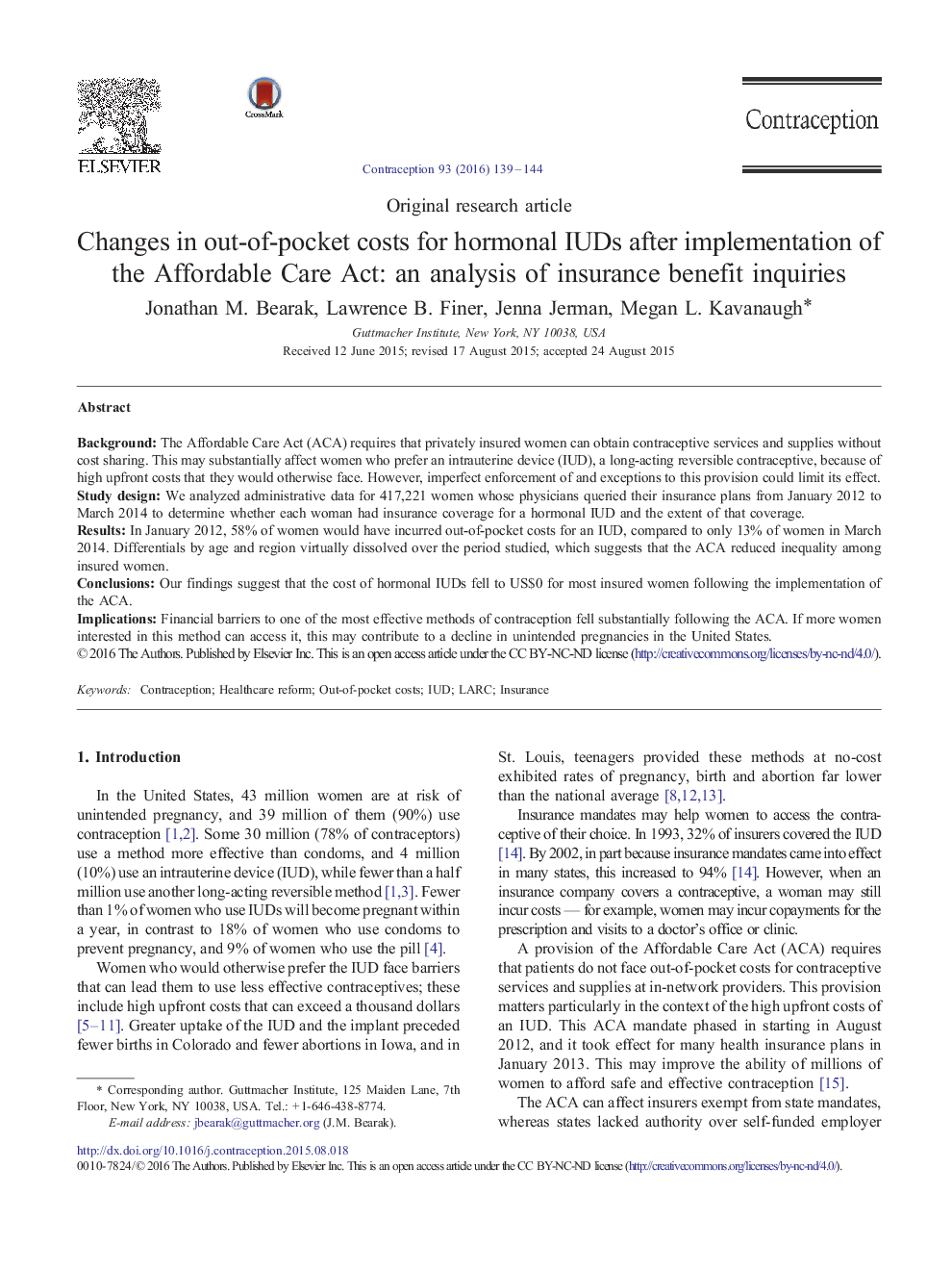| Article ID | Journal | Published Year | Pages | File Type |
|---|---|---|---|---|
| 6170586 | Contraception | 2016 | 6 Pages |
BackgroundThe Affordable Care Act (ACA) requires that privately insured women can obtain contraceptive services and supplies without cost sharing. This may substantially affect women who prefer an intrauterine device (IUD), a long-acting reversible contraceptive, because of high upfront costs that they would otherwise face. However, imperfect enforcement of and exceptions to this provision could limit its effect.Study designWe analyzed administrative data for 417,221 women whose physicians queried their insurance plans from January 2012 to March 2014 to determine whether each woman had insurance coverage for a hormonal IUD and the extent of that coverage.ResultsIn January 2012, 58% of women would have incurred out-of-pocket costs for an IUD, compared to only 13% of women in March 2014. Differentials by age and region virtually dissolved over the period studied, which suggests that the ACA reduced inequality among insured women.ConclusionsOur findings suggest that the cost of hormonal IUDs fell to US$0 for most insured women following the implementation of the ACA.ImplicationsFinancial barriers to one of the most effective methods of contraception fell substantially following the ACA. If more women interested in this method can access it, this may contribute to a decline in unintended pregnancies in the United States.
